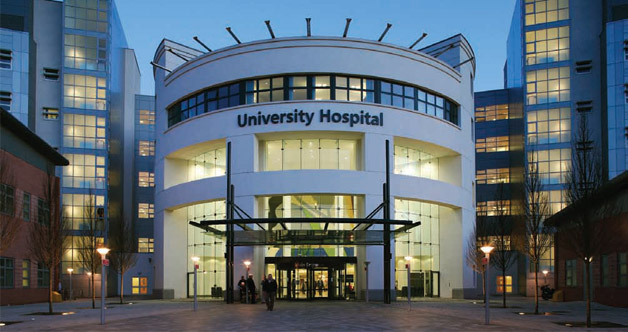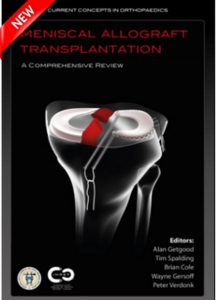Meniscal Transplant Surgical technique training
Cadaveric training sessions are held at various times
Surgeons wishing to gain experience can also arrange surgeon visits by contacting requested surgeon directly
MATFest: A one day focus meeting on the surgical technique of meniscal allograft transplantation, for specialist knee surgeons practising or wishing to start MAT surgery. 14 surgeons on 7 workstations performing Medial and Lateral meniscal transplantation procedures. 7 Observer surgeons also invited. Pre- course dinner at Coombe Abbey Hotel.
This years MATFest meeting will be held on 14th February 2018 at Surgical Skills Centre, University Hospital Coventry, CV2 2DX.
We are already at capacity this year due to high demand but to register your interest in attending our 2019 meeting please email info@meniscaltransplant.com
Download the Programme by clicking here.
Inaugural MATfest 2017
Meniscal Allograft Transplant Focussed Educational Surgical Technique. – Coventry January ‘17
The first UK course with cadaveric sessions to cover meniscal allograft implantation, was held in early January 2017 in the Surgical Skills Centre, Coventry. This emerging technique has been the subject of intense interest amongst knee surgeons and Mr Tim Spalding and his team put together a world class faculty to explore the rationale behind, and surgical highlights of the procedure.
Faculty and delegates assembled for a pre-course meeting and dinner at Coombe Abbey, a former 12th Century Monastery, on the outskirts of Coventry, and the gathering was prefaced by Tim Spalding paying tribute to his team, including research physiotherapist Laura Asplin, who had put such effort into organisation.

Coombe Abbey, Coventry
The morning session commenced with short lectures on the pivotal issues in Meniscal Allograft Transplantation (MAT): Where are we now in 2017? What is the evidence that it works? How should I prepare to commence MAT in my practice? Nick Smith and faculty fielded questions and drew from the published evidence.
Christian Bezenar from principal sponsor JRF Ortho gave an insightful talk on the logistics behind allograft sourcing, preparation and size matching. This highlighted that consideration of the tissue composition from the moment of harvest, through cleaning, screening and preservation has moved on in recent decades. Sizing using various established techniques was discussed and Christian’s colleague at JRF, Ron Watters explained their role as partners to implanting surgeons, with each implantation considered as a bespoke match, rather than an off-the-shelf process. His track record suggested size matching more menisci than any other individual on the planet, and the experience was evident.
Further discussion on parallel surgical procedures such as osteotomy was useful and heated, and the small delegate numbers and accessible faculty meant that a free sharing of ideas was quickly established. Rehabilitation and aftercare were established as pivotal to surgical success and a tantalising question remained unsolved: would you let your meniscal allograft patient return to contact sports?
The course then moved on to the surgical technique and use of the cadaveric lab. Tim Spalding and faculty ran through the soft-tissue allograft technique used in his unit (versus bone blocks) and the excellent lab at University Hospital Coventry showed once again why cadaveric teaching is so vital to this discipline.
Faculty were on hand to demonstrate and guide delegates as they attempted first lateral, then medial transplantation. With luminaries as Peter Verdonk, Alan Getgood, James Robinson and other circulating, it was quickly noted that within the room was the collective experience of perhaps 500+ allograft transplantations. [check numbers here] Delegates were able to perform an entire surgery from skin to skin with real-life human allografts provided very graciously by JRF Ortho.

University Hospital Coventry
After the cadaveric sessions finished, delegates then reconvened to hear from Alan Getgood about the International Meniscus Reconstruction Experts Forum (IMREF) Consensus View, published in 2015 Ref 1 on MAT and his experience in Ontario. Including the WOMET score Ref 2 designed with meniscal pathology as its target, and something most of the faculty were unaware of. These 15 statements of consensus represent the “state-of-the-art” for MAT and with three of the five principle authors present, it was useful to cover the points again.

The discussion than moved to coding and billing, with a slant towards UK and NHS practice. Much work has been done by Messrs Spalding and McDermott amongst others in establishing how to code this emerging procedure. More importantly, of course, how to code to reflect its complexity and cover the outlay in theatre time and allograft purchase. Whilst delegates were immediate bewildered by the NHS coding system, it was clear that simply mastering the technique was only the start of things. The meeting drew to a close with a question and answer session for the faculty and breakout cadaveric sessions in the lab next door.
Thanks is due to the organising team, and industry contacts who supported the meeting and indeed the staff of the cadaveric lab who provided such a high standard of equipment and support on the day
Ref1: http://journals.sagepub.com/doi/full/10.1177/0363546516660064
Ref 2: 13. Kirkley A, Griffin S, Whelan D. The development and validation of a quality of life-measurement tool for patients with meniscal pathology: the Western Ontario Meniscal Evaluation Tool (WOMET). Clin J Sport Med. 2007;17(5):349-356. Google Scholar CrossRef, Medline






